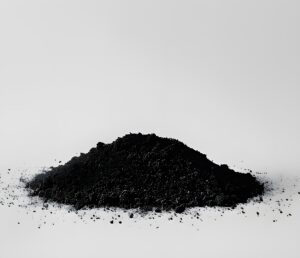Plastic Energy Ltd. (London, U.K.; www.plasticenergy.com), a global leader in chemical recycling, is believed to be the first plastic chemical recycling company to commercialize ‘char,’ a byproduct of its TAC™ chemical recycling process, under the name TACFILLER.

The breakthrough product offers a lower-carbon, circular alternative to carbon black, an unsustainable material used primarily in rubber manufacturing to improve rubber properties.
This milestone comes as the rubber industry faces growing pressure to reduce emissions and comply with regulations such as the EU’s End-of-Life Vehicles Directive – which mandates higher recycled content and reduced environmental impact in motor vehicle components.
TACFILLER presents a scalable and sustainable solution. It is the first product of its kind to be REACH registered (a regulation that applies to the majority of chemical substances that are manufactured in or imported into Great Britain) and, acting as a direct replacement for carbon black, would help the rubber industry to significantly reduce its emissions and meet recycled content targets.
Carbon black is added to rubber to increase its durability. However, its production from fossil fuels is emissions-intensive, contributing between 29-79 million metric tonnes of CO₂ emissions globally each year.1
TACFILLER, by contrast, is made from post-consumer plastic waste, reducing reliance on virgin fossil fuels. Plastic Energy conducted a Life Cycle Assessment on TACFILLER and found that its production results in up to 89% lower emissions than conventional carbon black.
TACFILLER is derived from Plastic Energy’s proprietary TACTM chemical recycling process, which converts hard-to-recycle, post-consumer plastic waste into TACOILTM, a recycled feedstock used to replace fossil oils in the production of new plastics. This process diverts plastic from landfill and incineration, reducing waste, and cutting emissions by up to 78% compared to incineration. The inclusion of TACFILLER brings Plastic Energy’s potential total recycling rate up to almost 90%, further enhancing the circularity of its process.
Ian Temperton, Chief Executive Officer of Plastic Energy, said: “Carbon black is energy intensive, and the rubber industry needs alternatives. We’re proud to lead our industry by creating new circular products from plastic waste. Less than 10% of plastic is recycled globally, yet it’s a valuable resource that should be reused. Our technology allows us to reduce plastic waste sent to incineration and landfill by finding sustainable uses for it in the manufacture of new plastic—and now rubber. We are offering a pioneering product that is both better for the environment and commercially viable.”
Plastic Energy is currently working with several leading manufacturers, including Standard Profil, to ensure TACFILLER is fully compatible to be integrated into their products.
Yusuf Güner, Group R&D Materials Senior Expert at Standard Profil, said:“We boldly explored the use of TACFILLER to partially replace carbon black in our products. After a series of rigorous trials, we have validated its feasibility and are encouraged by the results. This opens exciting possibilities for future applications, which we continue to evaluate with curiosity and care.”